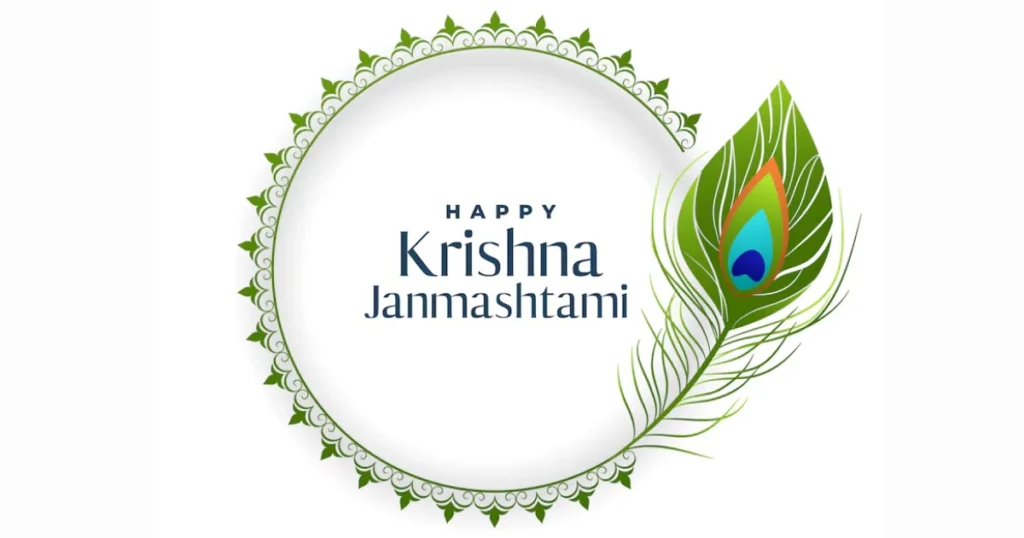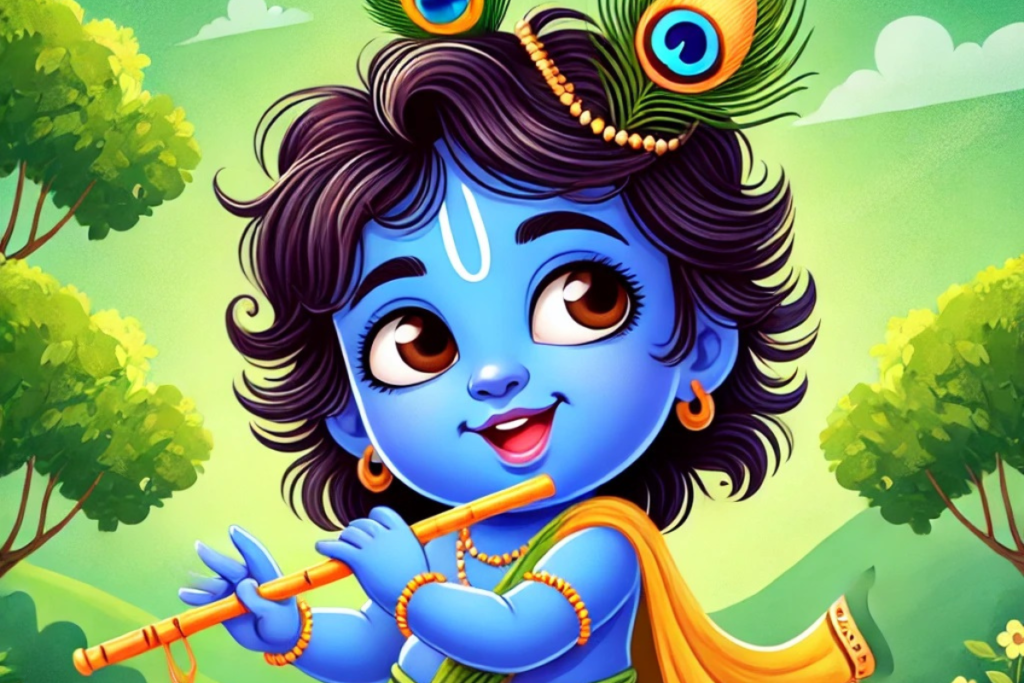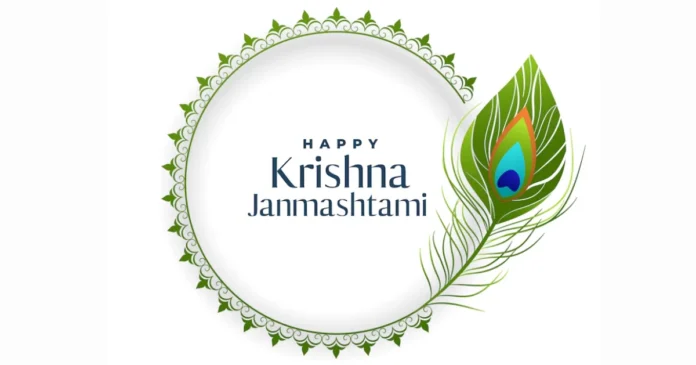Krishna Janmashtami, also known as Gokulashtami, is one of the most vibrant and revered festivals in Hinduism. Celebrated with immense devotion and joy, this festival marks the birth of Lord Krishna, the eighth avatar of Vishnu, who is beloved for his divine playfulness, wisdom, and miraculous deeds. As Janmashtami 2024 approaches, let’s explore what makes this festival so special, how you can extend your wishes, and the significance of fasting on this auspicious day.

What is Special About Janmashtami?
Janmashtami is celebrated on the eighth day (Ashtami) of the dark fortnight of the month of Shravana (July-August) according to the Hindu lunar calendar. This day holds profound significance as it commemorates the birth of Lord Krishna in a prison cell in Mathura, where his parents, King Vasudeva and Queen Devaki, were imprisoned by the tyrant King Kamsa.
The festival is imbued with rich cultural, spiritual, and historical layers:
1. Divine Birth: Krishna’s birth is celebrated as a triumph of good over evil. His life story is filled with divine miracles and teachings that continue to inspire millions. From lifting the Govardhan Hill to protect his devotees from torrential rains to his enchanting dance with the gopis (milkmaids) of Vrindavan, Krishna’s life is a series of captivating episodes that highlight his divine nature.
2. Spiritual Lessons: The teachings of Krishna, especially those conveyed in the Bhagavad Gita, are central to Hindu philosophy. The Gita provides guidance on how to live a righteous life, perform one’s duties, and attain spiritual wisdom. On Krishna Janmashtami, devotees reflect on these teachings and how they can apply them to their lives.
3. Festive Traditions: The celebration of Krishna Janmashtami is marked by various vibrant traditions. Homes and temples are decorated with flowers and lights. Devotees sing devotional songs, dance, and reenact episodes from Krishna’s life. The breaking of the “dahi handi” (earthen pot filled with curd) is a popular activity, symbolizing the breaking of pride and ego, as Krishna did in his childhood.
4. Community Spirit: The festival fosters a strong sense of community. People gather in temples and homes, share festive foods, and participate in devotional activities. This collective spirit strengthens bonds and fosters a sense of unity among devotees.
How to Wish on Krishna Janmashtami?
Wishing someone on Krishna Janmashtami can be a heartfelt way to share the joy and blessings of this auspicious day. Here are some thoughtful ways to extend your wishes:
1. Traditional Greetings: Traditional greetings include “Happy Janmashtami” or “Krishna Janmashtami ki Shubhkamnayein.” You can also use phrases like “Janmashtami ki hardik shubhkamnayein” which translates to “Heartfelt wishes for Janmashtami.”
2. Personal Messages: If you’re sending a card or a message, you might write: “May the divine blessings of Lord Krishna fill your life with joy, peace, and prosperity. Wishing you and your family a joyous Janmashtami!”
3. Social Media Posts: For a more modern touch, consider sharing a post with a beautiful image of Krishna and a caption such as: “On this auspicious day of Janmashtami, let us celebrate the divine love and wisdom of Lord Krishna. May his blessings guide us towards a path of righteousness and joy. Happy Janmashtami!”
4. In-Person Wishes: When greeting someone in person, you might say, “May Lord Krishna’s grace bring happiness and success to your life. Wishing you a joyous and blessed Janmashtami!”
5. Devotional Offerings: If you’re visiting a temple or participating in a community celebration, you can offer flowers, light lamps, or contribute to charitable causes in the name of Lord Krishna. Such acts of devotion can be a meaningful way to celebrate the festival and extend your good wishes.
What Are the Rules for Fasting on Krishna Janmashtami?
Fasting on Krishna Janmashtami is an important aspect of the festival, observed with dedication by many devotees. The fast is believed to purify the mind and body and enhance spiritual growth. Here’s a guide to understanding the rules and practices associated with fasting on Janmashtami:
1. Types of Fasting
- Nirjala Vrat: This is a strict form of fasting where devotees abstain from all food and water for the entire day, from sunrise until the appearance of the moon.
- Phalahar Vrat: Some devotees choose to consume only fruits, milk, and other light foods throughout the day. This allows them to keep their energy levels up while still adhering to the spirit of the fast.
- Partial Fast: Others may choose to fast only during the day and break their fast in the evening after performing religious rituals and prayers.
2. Preparation
- Cleanliness: Before starting the fast, it is customary to take a bath and wear clean, preferably white or light-colored clothes. This symbolizes purity and readiness to observe the fast.
- Prayer and Devotion: The day begins with prayers and chanting of hymns dedicated to Lord Krishna. Devotees often engage in reading sacred texts like the Bhagavad Gita or Krishna’s leelas (pastimes).
3. Breaking the Fast
The fast is typically broken after the Krishna Janmashtami midnight, which is considered the time of Krishna’s birth. Devotees often break their fast with a feast of traditional foods that include sweets like khir (a sweet milk pudding) and panjiri (a mix of flour, sugar, and ghee).
4. Observance
- Avoidance of Certain Foods: During the fast, devotees avoid grains, pulses, and non-vegetarian foods. Meals are prepared using ingredients like fruits, milk, and nuts.
- Spiritual Focus: The day is spent in devotion, participating in temple activities, reciting Krishna’s glories, and listening to stories of his divine deeds.
5. Health Considerations
It’s important to listen to your body and stay hydrated if you’re choosing a less strict fasting method. For those with health conditions or who are new to fasting, consulting a healthcare provider or spiritual advisor can be beneficial.

You might also like: Raksha Bandhan 2024: A Strong Bond Beyond Blood
Krishna Janmashtami 2024 offers a wonderful opportunity to delve into the joyous celebrations surrounding the birth of Lord Krishna. This festival is not just about the rituals and festivities but also about embracing the divine teachings and spreading love and joy. Whether you are fasting with devotion, sharing heartfelt wishes, or simply celebrating with family and friends, the spirit of Krishna Janmashtami is one of divine grace and communal harmony. May this Krishna Janmashtami bring you closer to the divine and fill your life with happiness and prosperity. Follow our culture page for more such interesting topics.
Happy Krishna Janmashtami 2024!


